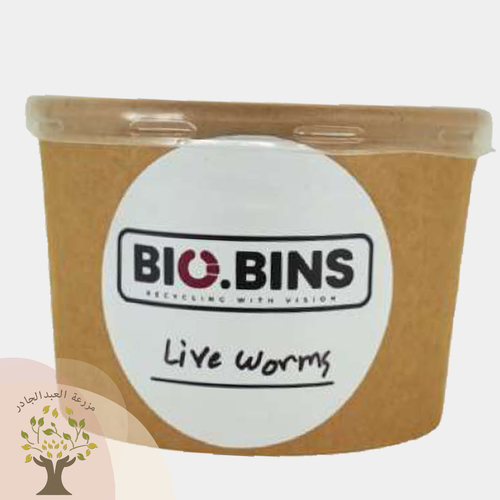
Power By MNASATI
AlAbdul AlJader Farm - Worms

The box contains 40 worms Worm Composting is an easy way to turn waste into nutrient-rich soil for your plants and garden. Adding
worms to your garden is a great way to improve aeration and soil health.
• Earthworms work to recycle household and garden waste, transform them into high-quality organic
fertilizer, and improve the composition of the garden soil.
• Improving soil fertility and increasing essential nutrients in it.
• Enriching the soil with microorganisms, such as beneficial bacteria and microorganisms that move on
the sides of the worms’ paths in the soil, as the mucus (humus) that surrounds them constitutes
necessary nutritional materials for these organisms and helps to hold the soil together against erosion
factors.
• Earthworms help in biological control, as an increase in the number of soil worms is associated with a
severe decrease in diseases and nematode numbers due to some of the secreƟons secreted by these
worms.
• Worms secrete some enzymes and growth regulators that work to increase the germination rate and
create a healthy biological environment for growing plants.
• It greatly helps in increasing the production of crops that are of high quality, safe, healthy, and
environmentally free of pollutants, and improves the natural taste of the fruits.
• Increasing the porosity and aeration of the soil and water drainage through the passages that the
worm digs while moving.
• Earthworms serve as bait and food for fish and birds and can be used as animal protein food.
• Soil pH regulators


